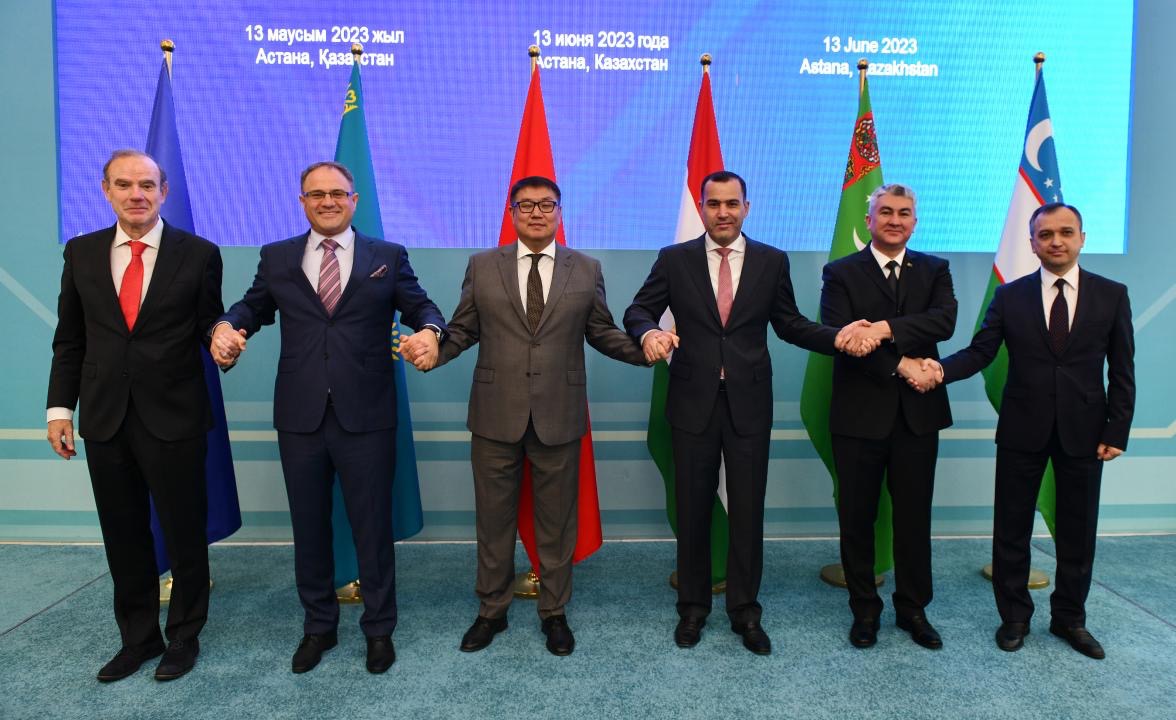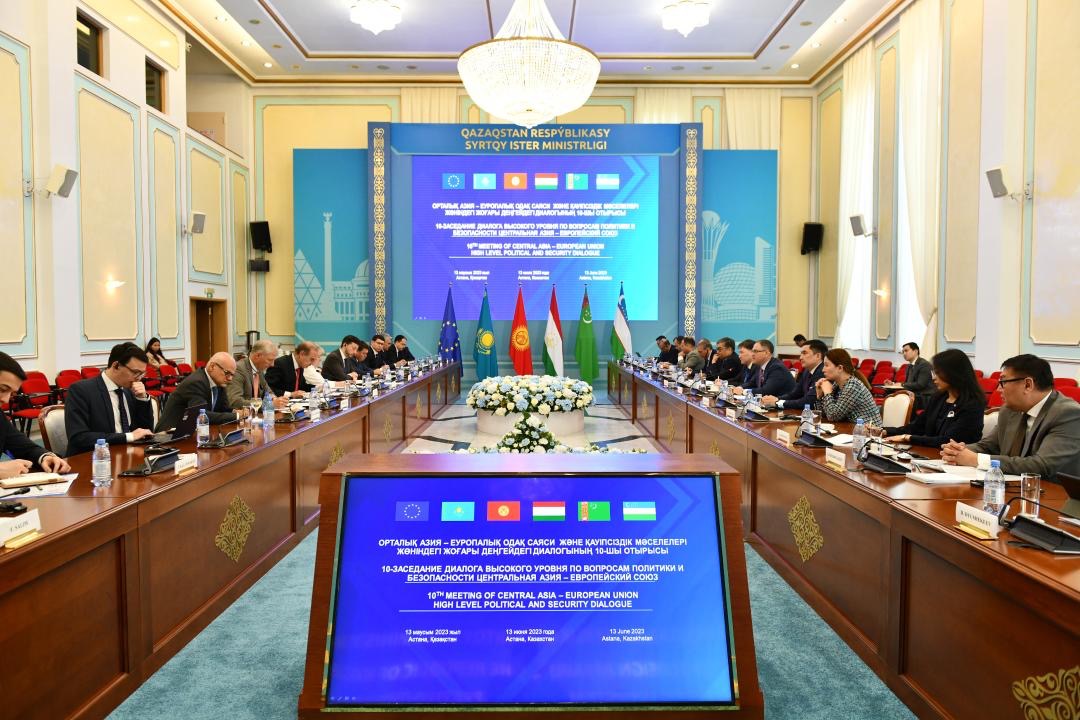Uzbekistan's Deputy Foreign Minister, along with the ministers of neighboring countries, attended the Central Asia-EU High-Level Political and Security Dialogue, the Astana Times reported.

The Central Asia-EU High-Level Political and Security Dialogue took place in Astana on June 13, bringing together deputy foreign ministers from Uzbekistan, Kyrgyz Republic, Tajikistan, and Kazakhstan, along with Turkmenistan's ambassador. The event aimed to strengthen interregional cooperation between Central Asia and the European Union (EU), addressing various pressing issues.
Officials from Central Asia and the EU expressed their commitment to deepening cooperation during the tenth-anniversary meeting of the Central Asia-EU High-Level Political and Security Dialogue. The dialogue followed the recent second regional high-level meeting between the Heads of State of Central Asia and the President of the European Council in Cholpon-Ata, Kyrgyzstan, which emphasized the growing interregional cooperation between Central Asia and the EU.
The discussions centered around expanding cooperation to ensure water security, combat illegal migration and religious extremism, and address the situation in Afghanistan, among other international concerns.
The meeting was hosted by Mr. Roman Vassilenko, the Deputy Foreign Minister of Kazakhstan, and chaired by Mr. Enrique Mora, Deputy Secretary-General for Political Affairs of the European External Action Service. Vassilenko emphasized that Kazakhstan, along with the rest of Central Asia and the EU, is entering a new stage of relations and expressed confidence in the strengthening of trade, economic, investment, and political ties.
“We are confident that in the near future, our interregional cooperation in trade, economic and investment spheres, in areas of transport and logistics, in countering common security challenges will become even stronger, while our political dialogue will expand and deepen,” Vassilenko said.

Mora, in turn, reassured that “the EU has been and remains a reliable partner for Central Asia.”
The Kazakh diplomat highlighted the significant increase in regional cooperation, including under the EU strategy on Central Asia. The EU has invested nearly $113.8bn in Central Asia over the past ten years, while trade between Central Asia and the EU increased by 61% and reached $49bn in 2022. At that, the trade turnover between Kazakhstan and the EU alone totaled $40bn.
Vassilenko outlined specific initiatives to enhance the investment and energy partnership between Central Asian countries and the EU. He identified rare earth metals, digitalization, ecology, and green transition as promising areas for collaboration.
Addressing the situation in Afghanistan, the sides discussed the outcomes of the recent meeting of EU and Central Asia Special Representatives and Special Envoys for Afghanistan in Ashgabat, Turkmenistan, and the United Nations conference in Doha, Qatar.
The participants outlined important areas of cooperation and preparations ahead of the Central Asia-EU Ministerial Meeting scheduled for this autumn, as well as a full-fledged Central Asia-EU summit in 2024. These upcoming events aim to further strengthen the relationship between Central Asia and the European Union and address shared challenges and opportunities.
Comments (0)